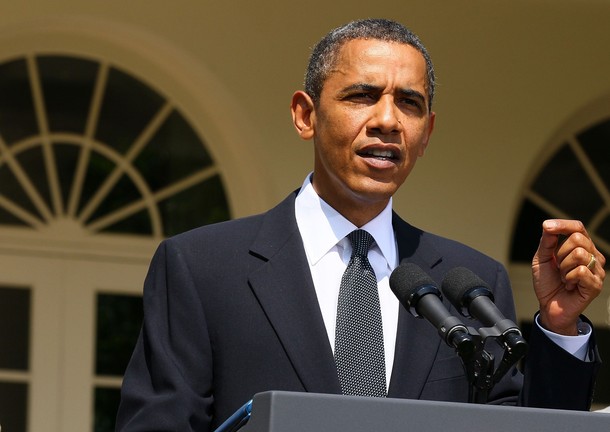
Despite ubiquitous references to 800-pound gorillas inhabiting imaginary rooms metaphorically constructed around highlighting or hiding critical issues, few people have had that pleasure in practice.
Yet, our patois has accepted and accommodated this interesting turn of phrase to describe a decisive or compelling fact or reality that dominates a particular issue.
To turn to the many really tough and possibly intractable problems and crises confronting U.S. President Barack Obama and the nation, there is a better term than “800-pound gorilla.” It is called “foreign policy.”
Last week, one set of polls held that about 3/5 of the public said they found the president wanting in his duties. About 2/3 indicated they felt the same way about the Democratic Party. And nearly 3/4 said they regarded the Republican Party in the same low standing.
Meanwhile, Obama has been taken apart on both sides of the partisan aisle over his economic recovery package, healthcare reform, financial reform and immigration. Wags and pundits argue with conviction that the November elections seem destined to return at least one house, if not both houses, of the U.S. Congress to Republican control.
With unemployment tottering just less than 10 percent, those on both the left and right say Obama hasn’t done enough. Republicans promise to repeal healthcare if they win back Congress and many Democrats say they don’t feel that the law has improved their situations yet.
Financial reform is too complex and too immature to garner fuller understanding of the consequences.
And immigration, given the inability of the federal government to control the flow of illegal aliens and Arizona responding with a law some argue guarantees racial profiling, remains a seemingly intractable problem.
Republicans are preparing for the November mid-term elections by accusing Obama of being a socialist and anti-business as well as embarked on a major redistribution of resources from rich to poor.
Democrats are branding Republicans as the party of “no” and challenging them to come up with a collective plan that would be as historically important as the major legislation passed under this administration and Congress.
Meanwhile, the Gulf of Mexico oil disaster helps no one as cleanup has miles to go to catch up with the damage done by the hemorrhaging of millions of gallons of that black gold.
Another long, hot summer shows no sign of relenting and taking the heat off both parties, Congress and the White House. But make no mistake, an 800-pound monster is lurking.
Foreign policy rarely if ever dominates domestic policy short of real as opposed to cold wars — meaning big ones such as World War II or unpopular and casualty-rich conflicts such as Vietnam.
With the drawdown of combat forces in Iraq by the end of September, that war has drifted off the headlines. And despite Chairman of the Republican National Committee Michael Steele’s correct characterization that Afghanistan has become Obama’s war, while U.S. combat fatalities and wounded are increasing, that number hasn’t reached a critical point to turn Americans dramatically against that conflict.
U.S. Secretary of State Hillary Clinton’s visit to the region over the past few days has had a calming effect on otherwise many pieces of bad news filtering out of Kabul as violence increases and Pakistan as both the power shortages and insurgencies intensify.
For the time being, a collective bullet may have been missed or avoided over the sinking presumably by North Korea of the South Korean frigate Cheonan. While Iran continues to develop its nuclear power capacity asserting it is only for peaceful uses, the prospect of a pre-emptive attack by Israel with or without our help remains in the background. And the Balkans as well as the Caucuses remain unsettled and volatile with little notice on our part.
Anyone hear something going tick, tick, tick?
The Obama administration and the Republicans will exchange many broadsides over the coming days over domestic issues. The public will be lulled into a sense of false security over what is commonly called foreign policy simply because problems at home are more visible and important for the moment. However, a successful Times Square terror attack or a Mumbai type incident that brings Pakistan and India to the brink will concentrate our thoughts.
None of this is a prediction of a specific foreign policy incident occurring that transfixes and refocuses our attention and our fears. Some will argue that the world has always been and remains a dangerous place. But that danger has profoundly changed.
During the Cold War, the real 800-pound gorilla was a conflict between East and West that went nuclear and could well have ended society as we knew it.
Today, the absolute stakes are far lower. Annihilation is off the table but the political consequences of crises abroad that will take place are real, powerful and can be game changers.
Harlan Ullman is Senior Advisor at the Atlantic Council, Chairman of the Killowen Group that advises leaders of government and business, and a frequent advisor to NATO. This article was syndicated by UPI. Photo credit: Getty Images.
Image: Obama%20Jul%202010.jpg
